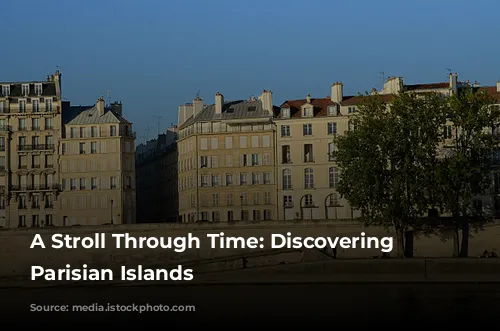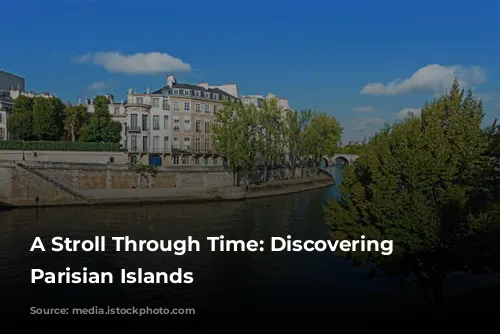Paris, the City of Lights, isn’t just about grand boulevards and iconic landmarks. Tucked away on the Seine River are two charming islands: the Île Saint-Louis and the Île de la Cité. These tranquil havens offer a unique blend of history, art, and Parisian charm, perfect for a leisurely stroll.
The Île Saint-Louis and the Île de la Cité have been part of Paris’s tapestry for centuries, captivating visitors with their serene atmosphere and architectural gems. From historic monuments to charming green spaces, these islands provide a peaceful respite from the city’s bustling energy.
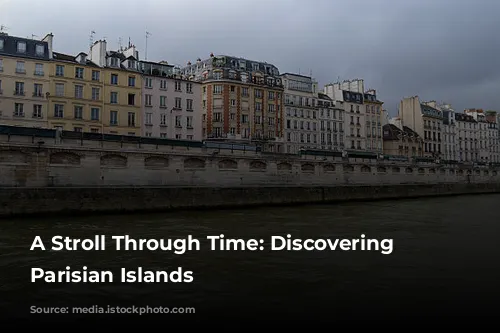
A Glimpse into Parisian History: Unveiling Hidden Gems
The Hôtel Lambert, a magnificent private mansion built in 1640, stands proudly on the Seine River’s banks. Its grand facade, impressive rotunda, and serene garden whisper tales of a bygone era. Although not open to the public, we can imagine the grandeur of the Gallery of Hercules, adorned with paintings by Charles le Brun, and the other treasures it houses.
Voltaire, Rousseau, Chopin, and Balzac – literary and artistic giants – once graced the halls of this historic gem, adding to its captivating aura.
Hidden Green Oasis: Seeking Tranquility
Tucked away at the Île Saint-Louis’s tip lies Square Barye, a small triangular park offering a delightful escape from the city’s clamor. This tranquil space, named after the renowned animal sculptor Antoine-Louis Barye, whose works can be found at the Louvre Museum, provides access to the serene Seine River’s banks.
It’s a perfect spot to enjoy a breath of fresh air and a moment of quiet contemplation in the heart of Paris.
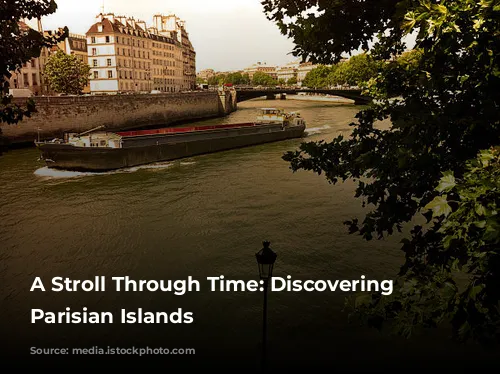
Connecting the Islands: A Bridge to History
The Saint-Louis Bridge, the only bridge connecting the Île Saint-Louis to the Île de la Cité, is a haven for artists seeking inspiration. This pedestrian and bicycle-only bridge offers breathtaking views of the Notre-Dame de Paris Cathedral’s eastern facade and the City Hall.
A peaceful walk across this bridge is a journey through time, a reminder of the city’s rich history.
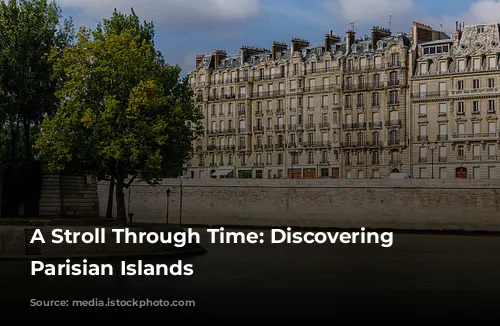
The Heart of Paris: A Gothic Masterpiece
Dominating the Île de la Cité from its imposing height of 69 meters, Notre-Dame de Paris Cathedral stands as a testament to architectural genius. Constructed between 1163 and 1345, it embodies the Gothic style and is an iconic symbol of Paris.
From its forecourt, we can marvel at its intricate details, including the gargoyles and chimeras, which seem to watch over the city with a watchful eye.
Unfortunately, Notre-Dame was ravaged by a devastating fire in 2019. Closed to the public during the restoration, it is expected to reopen its doors in 2024, promising to once again captivate visitors with its grandeur.

An Unexpected Name: The Oldest Bridge in Paris
Contrary to its name, the Pont Neuf is the oldest bridge in Paris, dating back to 1578. It was the first bridge built without houses or shops and the first to feature sidewalks for pedestrians.
For years, a pump called Samaritaine supplied water to the Louvre and the Tuileries Garden from the bridge. Although the pump no longer exists, its name lives on through the department store located near the Pont Neuf.
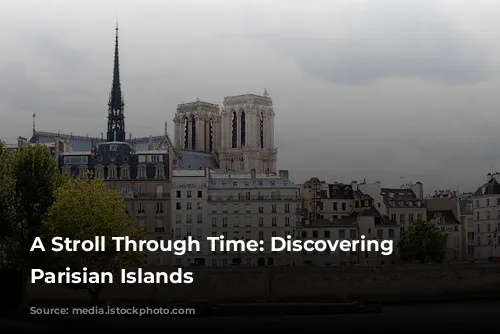
A Royal View: Contemplating the City
At the heart of the Pont Neuf, we find the magnificent equestrian statue of King Henry IV, a tribute erected by his wife, Marie de Medici. This statue offers a panoramic view of the Seine River and its surrounding monuments.
Hidden Garden: An Unusual Perspective
At the Île de la Cité’s end, below the Pont Neuf, lies the Square du Vert-Galant, a hidden green oasis spared from the tourist crowds. This small garden provides an unusual perspective of the Louvre Museum, the Institut de France’s dome, the Passerelle des Arts, and the Pont Neuf’s famous mascarons – grotesque figures carved in stone.
At sunset, the Square du Vert-Galant transforms into a magical space, where the city’s lights reflect on the Seine and create a mesmerizing ambiance.
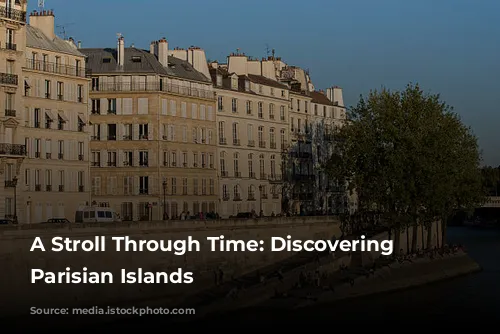
A Mansion with a Past: A Literary Haven
The Hôtel de Lauzun, a stunning mansion dating back to 1658, is renowned for its association with literary giants Théophile Gautier and Charles Baudelaire. It was also the meeting place for the Haschischins club in the 19th century, a group of writers and scientists who experimented with various drugs.
Today, the Hôtel de Lauzun can be visited by reservation, allowing visitors to experience its sumptuous lounge and admire its beautifully preserved 17th-century architecture.
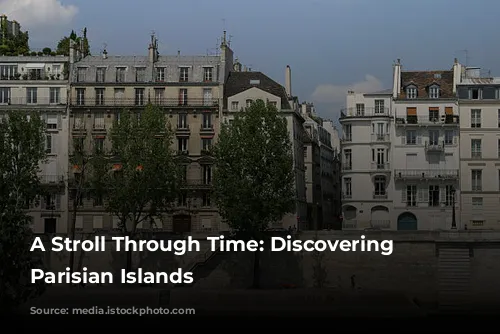
The Isle’s Secrets: An Archaeological Journey
The Île de la Cité’s archaeological crypt, overlooking the Notre-Dame square, offers a unique journey through time. Through models, remains, and 3D reconstructions, the crypt reveals the island’s architectural and urban evolution, from antiquity to the 20th century.
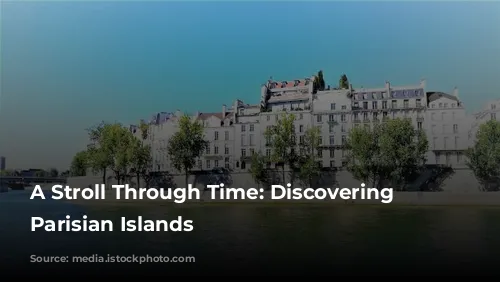
Heart of the Island: A Street of Delights
Rue Saint-Louis-en-l’Île, the main artery of the Île Saint-Louis, pulsates with life. It’s home to hotels, shops, and restaurants, drawing tourists and locals alike.
This vibrant street is particularly popular among ice cream lovers, who flock to the legendary Berthillon ice cream parlor for a taste of Parisian indulgence.
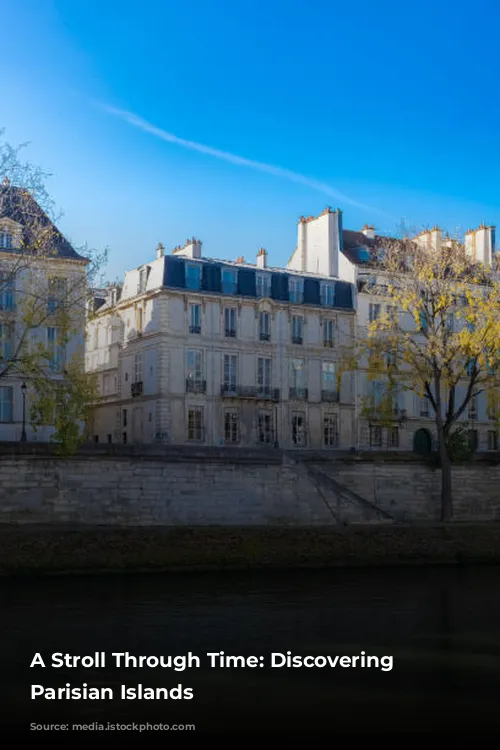
A Unique Clock: A Baroque Gem
From Rue Saint-Louis-en-l’Île, we can admire the Saint-Louis-en-l’Île church, with its unusual clock positioned perpendicular to its facade. Built between 1664 and 1726, the church’s architecture is understated yet houses a remarkable Baroque-inspired organ.
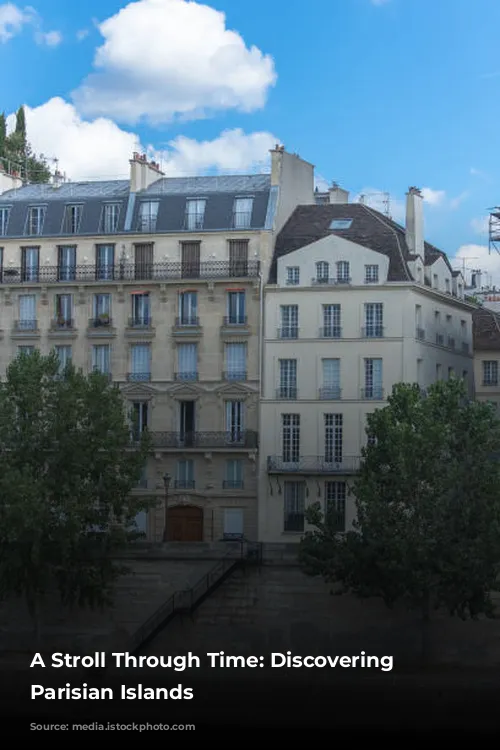
A Parisian Escape: Discover the Islands’ Treasures
Just a stone’s throw from the Eiffel Tower and the Hôtel Bleu de Grenelle, the Île Saint-Louis and the Île de la Cité offer a unique perspective of Paris. These enchanting islands are a treasure trove of history, art, and Parisian charm, waiting to be explored.
Enjoy a stay at a nearby hotel and immerse yourself in the wonders of the 4th arrondissement. Let the Île Saint-Louis and the Île de la Cité captivate you with their timeless beauty and charm.
